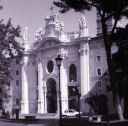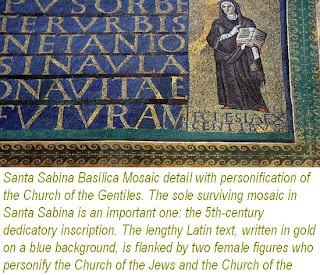 |
| Laetare Sunday |
Lent: March 10th
Fourth Sunday of Lent
"Rejoice, Jerusalem! Be glad for her, you who love her; rejoice with her, you who mourned for her, and you will find contentment at her consoling breasts." This Sunday is known as Laetare Sunday and is a Sunday of joy. Lent is half over, and Easter is enticingly near.

The Station at Rome is in the basilica of Holy Cross in Jerusalem, one of the seven principal churches of the holy city. It was built in the fourth century, by the emperor Constantine. The emperor's mother, St. Helen, enriched it with most precious relics, and wished to make it the Jerusalem of Rome.
St. John Ogilvie
 Jesuit priest and martyr. St John was born at Drum na Keith in Banffshire, Scotland, in 1580 and brought up as a Calvinist. His parents sent him to France for his education and at the age of 16 he decided to become a Catholic. He was received into the church at Louvaine and joined the Society of Jesus in 1599.
Jesuit priest and martyr. St John was born at Drum na Keith in Banffshire, Scotland, in 1580 and brought up as a Calvinist. His parents sent him to France for his education and at the age of 16 he decided to become a Catholic. He was received into the church at Louvaine and joined the Society of Jesus in 1599.For ten years he worked in Austria, He was then assigned to the French province and ordained in Paris in 1610. He longed to return to his native Scotland but had to wait until 1613 until he was granted permission.
Because of the penal laws at the time he had to hide the fact that he was a Catholic and a priest. Arriving in Scotland he found most families had become Protestant at least officially, and were unwilling to help him. Eventually he was taken in by William Sinclair, an advocate who employed him to tutor his son. John also ministered, preached, reconciled and counselled Catholics in Glasgow and Renfrewshire.
He was arrested and tortured in Glasgow for many days but refused to name any fellow Catholics. Eventually he was taken to Edinburgh where he was charged with high treason. At his trial he declared his loyalty to the King and obedience in all temporal matters. But, he said he could not 'in matters of spiritual jurisdiction unjustly seized'. He was offered both his freedom and a rich benefice if he would give up his religion but refused and was executed by hanging.
http://www.therealpresence.org/archives/Saints/Saints_017.htm




